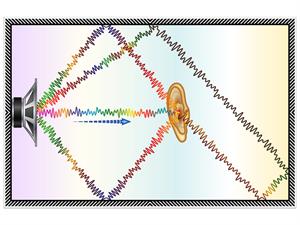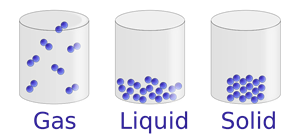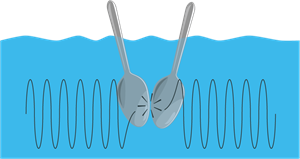
PUMPA - SMART LEARNING
எங்கள் ஆசிரியர்களுடன் 1-ஆன்-1 ஆலோசனை நேரத்தைப் பெறுங்கள். டாப்பர் ஆவதற்கு நாங்கள் பயிற்சி அளிப்போம்
Book Free DemoPropagation of sound through a medium:
- From the point of production to the receiver end, sound requires a medium to travel.
- The different mediums of propagation of sound are air, liquid and solid.
- Because there is no medium of transmission, sound cannot travel through vacuum.

Travel of sound through air medium
Important!
Medium: A substance through which energy of some kind can travel.
Example:
Solid, Liquid, Gas.

Variation of molecules in different medium
Sound cannot travel in a vacuum:
- Sound cannot travel in a vacuum because sound waves always need molecules of some kind to travel in a given space.
- Sound produced by a source travels from one point to another by transmitting the energy through the molecules of the medium around it. This is why sound does not travel through a vacuum, where there are no molecules in it.
Travel of sound in liquid:
- The sound waves move through solid, liquid and gas by vibrating the molecules in the matter.
- In water, sound travels four times faster than it does in the air. Sound moves faster in water than air because water particles are packed very tightly compared to air.
- Thus, the energy the sound waves carry is transported faster.

Sound wave in liquids
Travel of sound in liquids:
- The sound waves move through different mediums by vibrating the molecules in it.
- The molecules in the solids are packed very tightly when compared to liquid as well as gas.Thus it enables sound to travel much faster through a solid than gas and liquid.
- Sound travels \(13\) times faster in solid than through the air.

Sound wave in solids
Reference:
https://www.scientificamerican.com/arabic/articles/bring-science-home/what-do-you-hear-underwater/
https://rajasthanboardd.blogspot.com/2019/05/cbse-class-8-why-do-we-need-parliament.html
https://commons.wikimedia.org/wiki/File:States_of_matter_En.svg